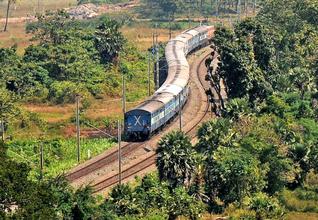Bengaluru: Feb 26: Slamming the railway budget presented by Railway Minister Suresh Prabhu, Chief Minister Siddaramaiah has termed it a “very disappointing” budget for Karnataka.
 Addressing reporters at his home office Krishna' in Bengaluru on Thursday, Siddaramaiah said the Centre had “completely neglected” Karnataka, except announcing the suburban railway project.
Addressing reporters at his home office Krishna' in Bengaluru on Thursday, Siddaramaiah said the Centre had “completely neglected” Karnataka, except announcing the suburban railway project.
He said the State government had written to the ministry ahead of the budget, requesting several projects, none of which had been considered.
The pending projects are double-tracking of Bengaluru-Mysuru and Sakleshpur- Subramanya lines; high-speed rail link between Bengaluru and Mysuru; extension of the Bangarpet-Mulbagal line to Chittoor; Mysuru-Kushalnagar-Madikeri line and a new train between Yeshwantpur and Chikkamagaluru; express trains between Bengaluru- Mysuru, Bengaluru-Tumakuru; Gadag-Harapanahalli and Hosapete-Swamihalli (new lines), he said.
“There are four Union ministers from the State and 17 BJP MPs. None of them has bothered to put pressure on the Centre to consider these proposals.”
Siddaramaiah said though Karnataka had been offering extensive tracts of land for railway projects, the Centre was only considering other states such as Andhra Pradesh and Tamil Nadu.




Comments
Hublot Watch !
Add new comment